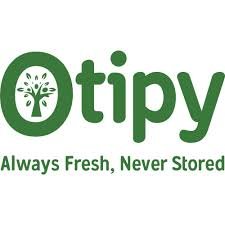
In a sudden and unexpected move, Delhi NCR-based agritech startup Otipy has officially shut down its operations, leaving around 300 employees jobless. The startup, which operated as a farm-to-fork delivery platform, announced its closure on Saturday, May 17, during a town hall meeting. The decision was confirmed by co founder and CEO Varun Khurana, who told employees that the company could no longer continue its business and asked them to seek new job opportunities.
The news came as a shock to the staff. One former employee described the moment, saying, “It felt like the ground beneath our feet was gone.” Many had arrived at the office expecting a normal workday, only to be informed that their livelihoods were gone.
Adding to the distress, Otipy has not paid salaries for the past one-and-a-half months. During the townhall, Khurana reportedly said the company would try to sell its remaining assets to pay off pending employee dues. But for now, the affected workers are left navigating a tough job market once again.
It’s not just employees who are facing problems. Several vendors who worked with Otipy have also reported non-payment of dues. A vendor shared that issues started back in October 2023, when payment delays began. While management initially responded with assurances, they reportedly stopped answering calls earlier this year.
Otipy also notified its customers about the shutdown. The company has promised to refund outstanding wallet balances within 60 to 90 days. However, the lack of clear communication has raised concerns among both users and partners.
Founded in 2020 by Varun Khurana and Prashant Jain, Otipy was a B2B2C social commerce startup and a subsidiary of Crofarm Agriproducts. It delivered fresh vegetables, fruits, dairy products, and groceries to homes across Delhi NCR. Its unique model allowed for the delivery of produce directly from farms, ensuring freshness and faster delivery.
Interestingly, Otipy’s shutdown comes just five months after it started a pilot project involving electric carts in Gurugram. These carts were meant to sell fresh produce offline and were part of a larger plan to deploy 5,000–7,000 electric vehicles across Delhi NCR and Mumbai by 2026. The plan was ambitious, but it now appears to be abandoned.
According to insiders, the key reason behind the shutdown was the startup’s inability to secure new funding. Otipy was reportedly in talks to raise $10 million in an extended Series B round, but there is no confirmation that the deal was ever closed. Without fresh capital, the company could not sustain its operations and had to wind down.
Otipy had previously shown strong growth. In March 2022, the startup raised $32 million in its Series B round, led by WestBridge Capital with participation from SIG and Omidyar Network. In total, it secured $44 million in funding over the years.
Despite its funding woes, the company had achieved positive growth metrics. For the financial year 2024 (FY24), Otipy reported sales of ₹160 crore, a 68% increase from the previous year’s ₹95 crore. It also managed to reduce its losses by 28%, from ₹72 crore in FY23 to ₹52 crore in FY24. These numbers show that while the startup was growing in terms of revenue, it was still struggling to become profitable.
Otipy’s closure echoes the fate of another WestBridge-backed startup, Fraazo, which also shut down in 2022. Fraazo, too, operated in the online vegetable and grocery delivery segment, showing that even well-funded startups are not immune to the challenges of capital-intensive business models and tight investor sentiment.
The sudden shutdown of Otipy highlights a broader issue within the Indian startup ecosystem, especially for companies in the agritech and quick-commerce sectors. These sectors require large operational expenses and tight margins, making them highly dependent on continuous funding. When investors pull back or market conditions tighten, even fast-growing startups can collapse overnight.
For now, the future of Otipy’s team and stakeholders remains uncertain. The startup’s downfall serves as a hard lesson in sustainability and financial management, and a reminder of how critical funding remains in the startup journey — not just for expansion, but for survival.


































